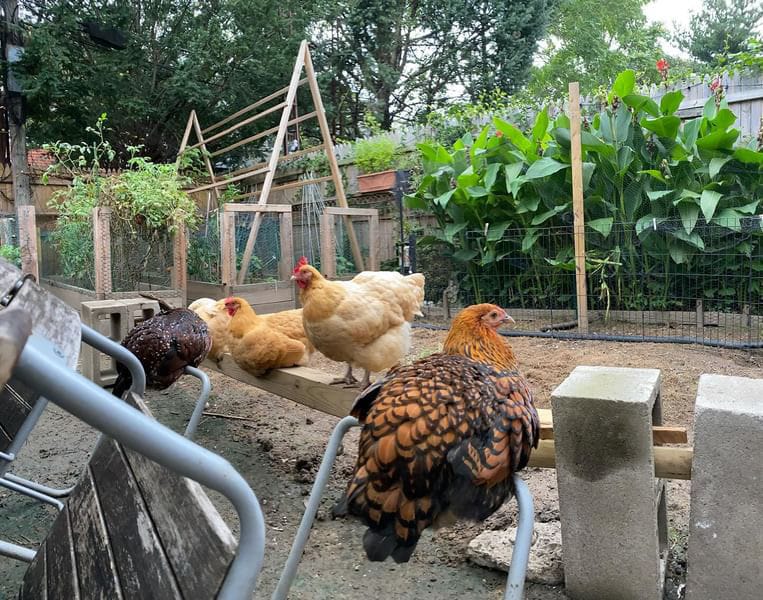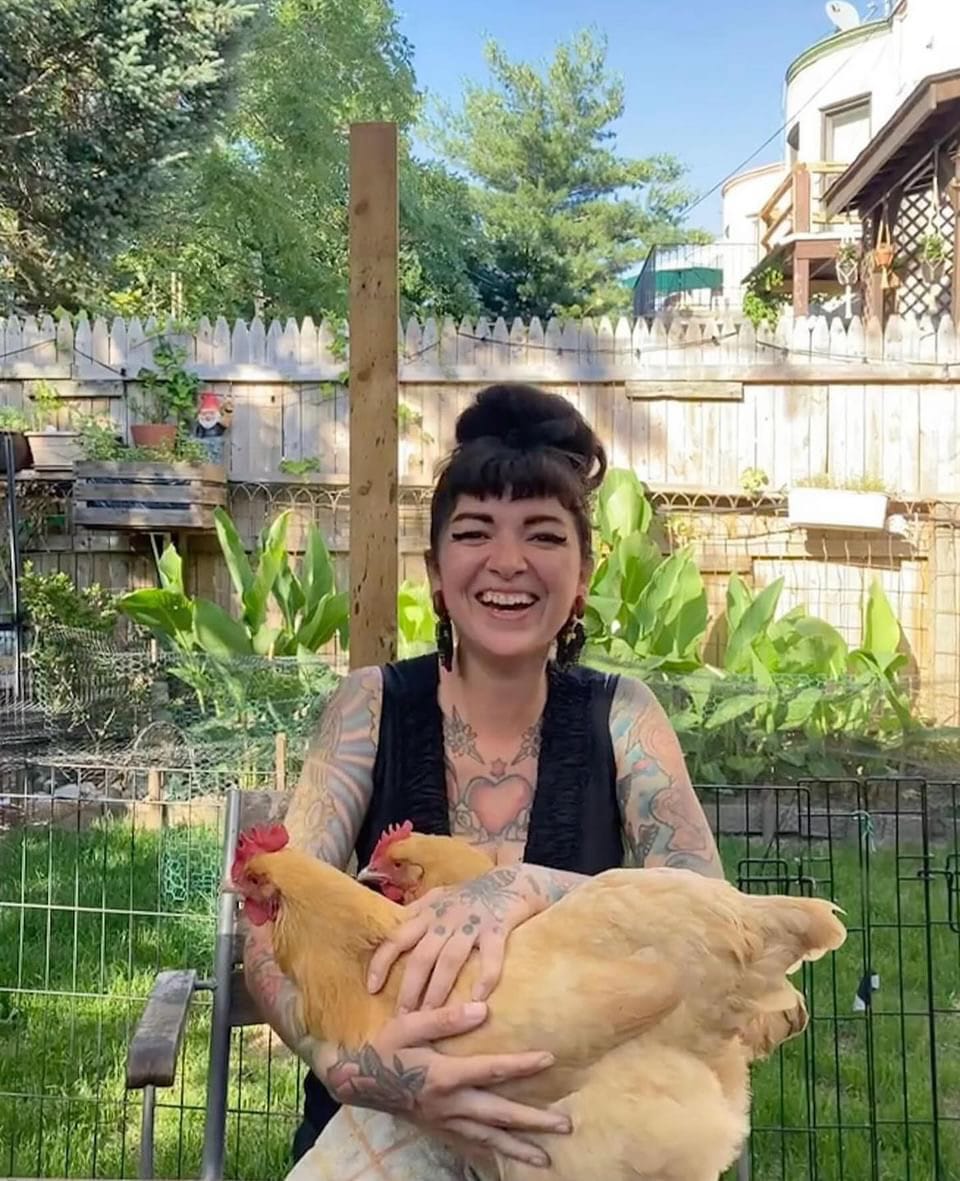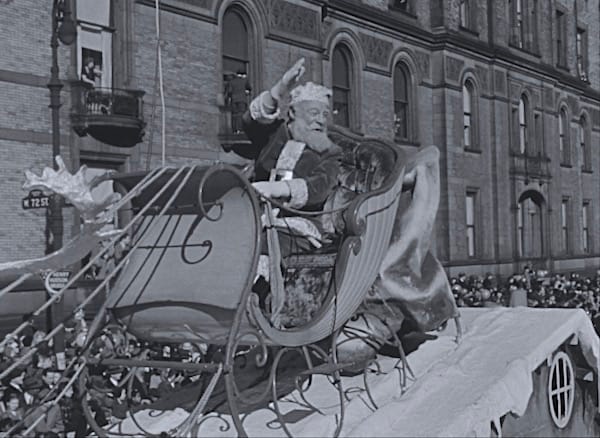Ask The Groove: Since when is New York so lenient about chicken ownership?
Ask The Groove is BACK baby, and boy oh boy do we have some chicken history for you.

Q: How did our chicken coop rules become more liberal than many small cities and suburbs? You can keep more chickens in Brooklyn than in Bangor, Maine.
A: While it’s easy to make the kneejerk assumption that chicken law has grown increasingly lenient in response to the ascendancy of twee urban farmers, this simply isn’t the case. New York has a long history as a chicken haven, and as far as Bangor, Maine goes, that’s a city in the throes of some specific, regional drama most fowl.
We’ll get into that in a bit, but as in all things, New York City comes first.
You don’t have to hen peck that far back into the city’s history to find a time when much of the five boroughs were still covered in farmland — Sheep Meadow in Central Park was grazed by honest-to-god sheep all the way up until 1934, when they were moved to the Catskills over concerns that impoverished New Yorkers might eat them.
And as far as urban farming goes, it’s hardly a brand new phenomenon. The Ansonia on the Upper West Side, built at the turn of the 20th century, featured a rooftop farm with “about 500 chicken[s]” until 1907, when the Department of Health grew concerned and re-homed those chickens to Central Park.
More standard-issue examples of New York City chicken stewardship abound within the modern day five boroughs. For one, this chicken coop off the Franklin Ave. shuttle in Crown Heights, whose owners let passersby purchase a handful of seed and feed the flock for 50 cents a pop.

On a larger scale you have the Queens County Farm Museum, which sits on a 47-acre tract that has been farmed for over three centuries.
In its current iteration, the farm is home to two steer, two alpacas, two pigs, five goats, nine sheep, and well over 300 chickens, the museum’s director of agriculture Danny Morales told The Groove.
“We collect the eggs, wash them and sell them at the farm store on site,” Morales said.
So basically, our chicken-friendly state of affairs has been the case since New York became New York in 1898. For regular New Yorkers without sprawling acres of farmland, it remains perfectly legal to own backyard hens in all five boroughs, per article 161.19 of the New York City health code. What you can’t do is raise roosters — sorry, Little Jerry Seinfeld. Also barred are geese, ducks or turkeys, and if your chicken setup creates “nuisance conditions” for your neighbors (think pests, odors and excess noise), that can result in fines of up to $2,000.

The only potential hurdle is logistics. “I didn’t expect it to be so complicated. You have to know a lot of different things in order to really raise chickens,” said Carolina Prieto, organizer of the Ridgewood Pop Up Market, who chronicles her chickens @luckyflock on Instagram.
For her current flock of six chickens, Prieto has outfitted her backyard in Queens with a coop, and feeds them strictly organic feed. “When I have extra eggs I’ll sell them to my regulars at the pop up market,” she said.
If you’re looking to raise chickens as a means of bypassing spiraling grocery store egg prices, that detail about organic feed is key.
“I feed my hens fermented grains, fruits, scraps, cabbages, a lot of produce — real food,” said Maria Aunkon (@nyc.chickens on Instagram) who currently has 46 chickens in her yard in Ozone Park. “It really changes the quality and taste of their eggs.”
But the startup costs don’t come cheap. “Initially, it’s a lot of expenses,” Aunkon said of becoming a chicken owner. “You should build them a solid coop that’s waterproof, and I put in low temperature heat lamps when the temperature gets below 35.”

Morales said much the same, noting that “the biggest thing is to understand their needs in a home, from fresh air to protection from inclement weather. It’s not as simple as giving them a little shed if you want them to have a good life.”
You should care about your animals’ quality of life anyway, but it’s worth noting that New York City is so pro-pet that in a landmark 2019 ruling a judge found that a cat had the right to leave owners he didn’t like, and that pets are definitively not considered personal property like inanimate objects. Yes, this also applies to your chickens, so treat them well.
Anyway, there are plenty of places that don’t share New York City’s open-armed approach to chickens — Philadelphia, for instance, where the issue remains an ongoing dispute — but you mentioned Bangor, Maine specifically, so let’s talk about Bangor, Maine.
In spite of recent efforts to overturn existing restrictions, Bangor is divided into agricultural and urban zones, and only in the former are residents allowed to raise backyard chickens. Opponents are reportedly concerned about neighbors’ birds getting “unruly,” so much so that one local family recently had to go all the way to an appeals court in order to keep their emotional support chickens for their special needs son.
Anti-chicken NIMBYism in a place where people have the luxury of actual backyards? Miss us with that. Get up, get down, New York is a chicken town.




Comments ()